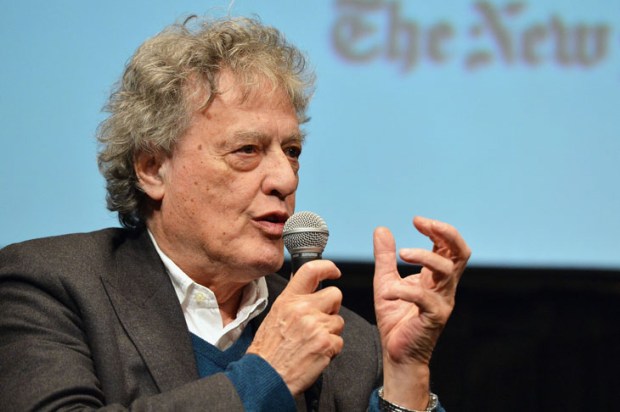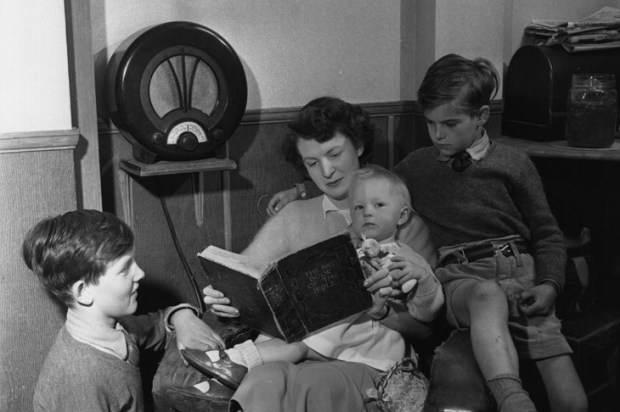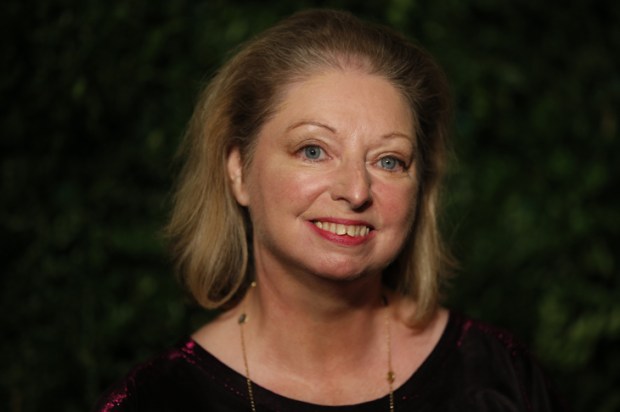He’s been billed as the new Pied Piper but it’s going to take a while for Tom Service to quite match the engaging brilliance of David Munrow, who back in the 1960s persuaded us that medieval pipes-only music was cool listening. Munrow’s series on what was then the Third Programme was aimed at six-to-12-year-olds but succeeded in drawing everyone in because of his gift for communication and his willingness to explore the wilder shores of repertoire, creating sound connections we had never heard before. Service’s new magazine programme for Radio 3, The Listening Service, may be inspired by Munrow but it’s not yet sure what it’s meant to be. How experimental? How difficult the content?
It’s timetabled at 5 p.m. on a Sunday afternoon, presumably in the hope that, like Munrow’s series, it might catch the interest of ‘young adults’ before they have to buckle down to the last-minute homework rush. This perhaps explains why, in the first episode at least, it was difficult to pin down its tone, starting off with Julie Andrews and The Sound of Music and ending with Mozart’s overture to Le nozze di Figaro (note the lack of translation). That first programme looked at musical beginnings: how do composers (whether standard classical, contemporary upstart or platinum-selling pop star) start a piece of music? How do they begin?
Anna Meredith, who has written music for the BBC’s Last Night of the Proms as well as for ‘a flashmob body-percussion performance’ in a service station on the M6, says that even before she has written a note she will have the title. This gives her an idea of the journey she wants to go on, and also the trip she wants us as listeners to enjoy. Service himself took us back to Bayreuth in 1876: a theatre plunged into darkness, then the faint glimmer of a long, slow chord from the double basses, gradually building, instrument by instrument, into the tumult that announces the beginning of Wagner’s Ring cycle.
But the musical clips were all too short, the pace of delivery too fast for us to take in what we were being told. I wanted, or rather needed, to hear more of Mozart’s ‘Paris’ symphony to appreciate fully what he was up to, and how he was working on his audience, surprising and thereby engaging. More coherent was Neil Brand’s segment of the programme, devoted to pop music, and how stars such as Eric Clapton and Paul McCartney hook us in with those first crucial seconds. We heard fragments from the usual suspects but it was the upbeat Pharrell Williams and his 2003 hit ‘Happy’ who caught my ear and led me to check it out online. Not what I expected.
Next week, Service turns his attention to repetition in a programme that sounded much less frenetic and desperate to impress, as if he is beginning to find the measure of what he’s trying to do. We discover how scientists have been exploring what happens in our minds when we listen and in particular when a short phrase within a longer sentence is repeated many times. The words in the phrase and their meaning get totally lost and all we can hear is a musical cadence. You can test this out for yourself on the programme in a clever move that suggests the series has the potential to become as much a classic as Munrow’s original (although Service could have come up with a more meaningful, catchier title).
Over on Classic FM, Catherine Bott (ex Radio 3) has been treating listeners to her guided tour of the musical world in her now long-established series Everything You Ever Wanted to Know About Classical Music (Sunday evenings). This week she talked to Meryl Streep about her latest film in which she plays Florence Foster Jenkins, who in the 1920s and 1930s entertained audiences in New York with her excruciatingly awful performances of arias from some of the best-loved operas. Nothing daunted her, whether it be Mozart’s Queen of the Night or Delibes’ Lakmé.
Why, asked Bott, do you think people kept coming back to hear her? (We heard selections from her recordings and so now know what they endured.) ‘Her passion and her zeal,’ said Streep. ‘And her love of music, her deep desire to deliver this expression of what she loved.’ It’s a lesson in how we should not be too precious about music, or critical. Foster Jenkins had money enough to indulge her desire to perform but she did also bring joy simply by how ‘really felt’ was her joy in the music.
One critic wrote of her that ‘she was exceedingly happy in her work’. It’s also what comes across in Bott’s delivery of her weekly programme. It’s not necessarily going to challenge us by taking us into parts of the repertoire we don’t usually hear but what we are given is a masterclass in how music can really change us, and why. And because it’s an hour long (as opposed to Service’s 30 minutes) we were also given satisfying chunks of music to enjoy.
Got something to add? Join the discussion and comment below.
Get 10 issues for just $10
Subscribe to The Spectator Australia today for the next 10 magazine issues, plus full online access, for just $10.














Comments
Don't miss out
Join the conversation with other Spectator Australia readers. Subscribe to leave a comment.
SUBSCRIBEAlready a subscriber? Log in